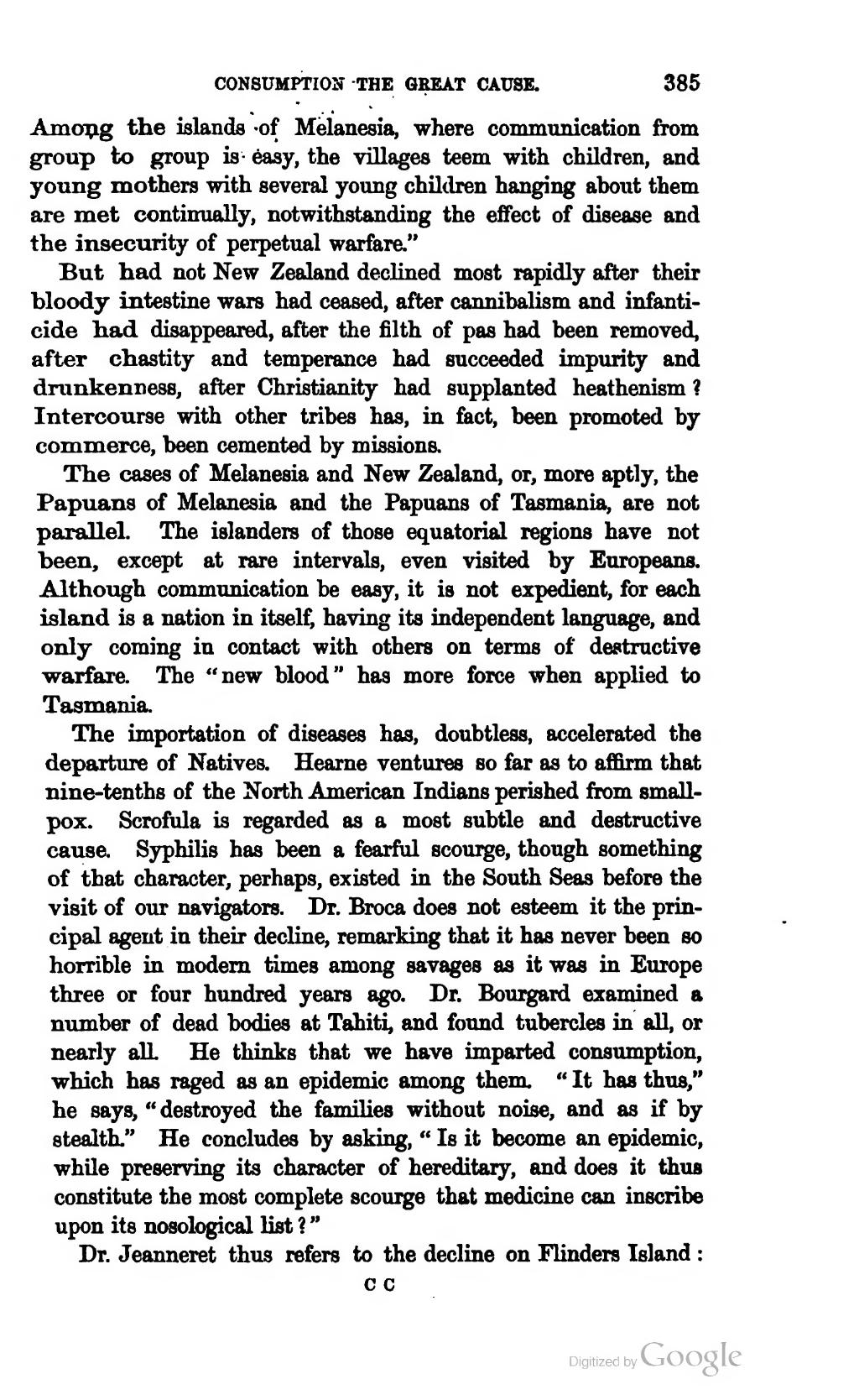Amog the islands of Melanesia, where communication from group to group is easy, the villages teem with children, and young mothers with several young children hanging about them are met continually, notwithstanding the effect of disease and the insecurity of perpetual warfare."
But had not New Zealand declined most rapidly after their bloody intestine wars had ceased, after cannibalism and infanticide had disappeared, after the filth of pas had been removed, after chastity and temperance had succeeded impurity and drunkenness, after Christianity had supplanted heathenism? Intercourse with other tribes has, in fact, been promoted by commerce, been cemented by missions.
The cases of Melanesia and New Zealand, or, more aptly, the Papuans of Melanesia and the Papuans of Tasmania, are not parallel. The islanders of those equatorial regions have not been, except at rare intervals, even visited by Europeans. Although communication be easy, it is not expedient, for each island is a nation in itself, having its independent language, and only coming in contact with others on terms of destructive warfare. The "new blood" has more force when applied to Tasmania.
The importation of diseases has, doubtless, accelerated the departure of Natives. Hearne ventures so far as to affirm that nine-tenths of the North American Indians perished from smallpox. Scrofula is regarded as a most subtle and destructive cause. Syphilis has been a fearful scourge, though something of that character, perhaps, existed in the South Seas before the visit of our navigators. Dr. Broca does not esteem it the principal agent in their decline, remarking that it has never been so horrible in modern times among savages as it was in Europe three or four hundred years ago. Dr. Bourgard examined a number of dead bodies at Tahiti, and found tubercles in all, or nearly all. He thinks that we have imparted consumption, which has raged as an epidemic among them. "It has thus," he says, "destroyed the families without noise, and as if by stealth." He concludes by asking, "Is it become an epidemic, while preserving its character of hereditary, and does it thus constitute the most complete scourge that medicine can inscribe upon its nosological list?"
Dr. Jeanneret thus refers to the decline on Flinders Island:
